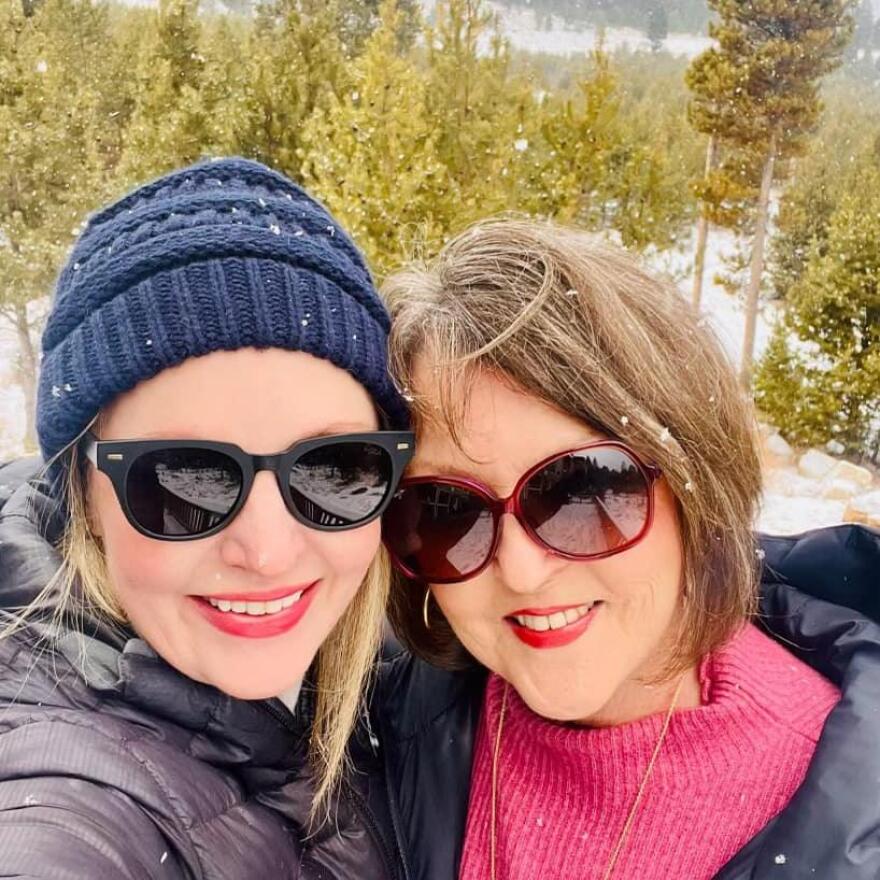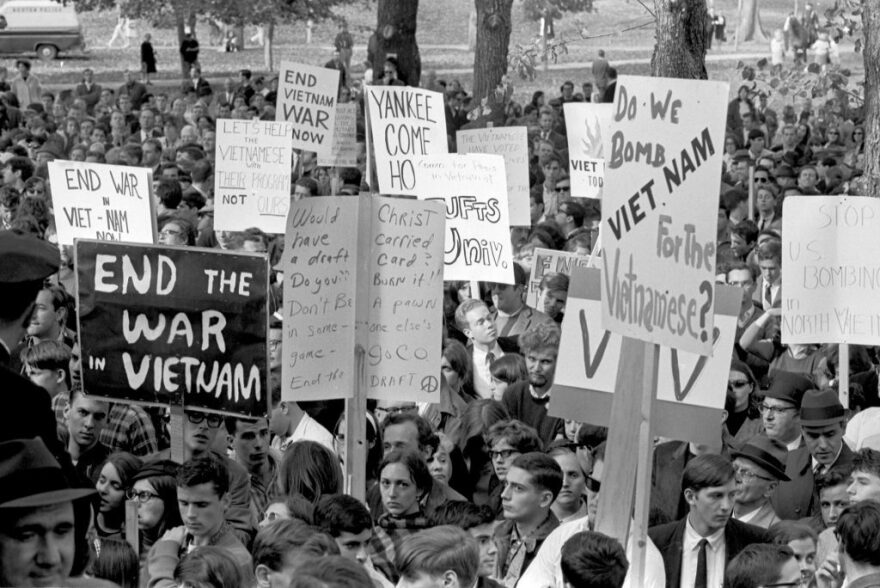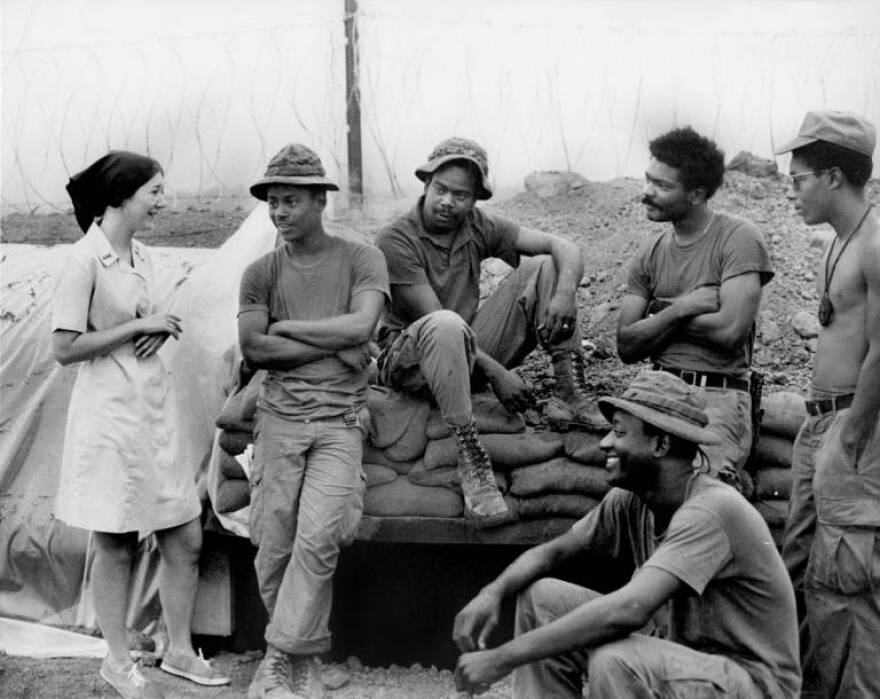Women from Montana affected by the Vietnam War speak out

In the Vietnam War, which ended 50 years ago, about 2.7 million men and women served in the various branches of the military. Of course, most of them were men. But the war also affected many women.
Sharon Burman of Missoula grew up in a predominantly white, rural Illinois town, but when she entered her classroom at Army Base Coleman, her little world was turned upside down.
“I’m not proud of not knowing anyone from a different background than my own, and I mean that ethnically. When I walked into class on my first day, there were 35 men in my classroom, all but two were black and the other two were Hispanic. My knees felt weak and I thought, ‘Oh, I don’t think I can do this,'” Burman said.
She had just graduated from college and took a job teaching high school classes in Germany. Most of her students would soon be sent to Vietnam. First they had to get their degree, their general school diploma.
“They were scared, they were young, they were away from home for the first time in their lives. They knew where they were going. Many of them couldn’t even read and they had been drafted,” Burman said.

This experience changed her and her attitude toward authority and American involvement in Vietnam.
“When I say it changed my life, I mean I no longer trusted my government. I decided to take a job at an inner-city school because education is the key to everything. I think I would never have been ready to do this without that experience. So for me personally, it was a wonderful experience in some ways,” Burman said.
For Sharon, the Vietnam War became a dividing line. There was always a life before and a life after. Although Sharon never worked in Vietnam, working with these men left a mark on the rest of her life. Women and men in the United States were busy making their distrust of the government known loudly.
The protest movement against the Vietnam War attracted tens of thousands of people to demonstrations in Washington DC and other cities and towns across the USA. Taylor Pape, who lives in Missoula, grew up in Pittsburgh, Pennsylvania.
“I actually skipped school for my first anti-war demonstration and never told my parents what I did that afternoon,” Pape said.

She studied at Boston University. At that time, most universities were confronted with the growing protest movement. One of Pape’s professors was the famous historian Howard Zinn.
“He often missed class because he was in prison. And we protested pretty hard, uh, in Boston. A lot of students also went to the big protests in Washington,” Pape said.
Pape was supposed to graduate in 1970, but then protests at Kent State University in Ohio escalated and BU became afraid.
“Boston University decided to shut down operations completely. They closed the dorms, sent everyone home, we had no final exams, no graduation ceremony, and we had all the time in the world to protest even more, even though they thought they were going to send us home,” Pape said.
Pape had a long-time partner, Haddon Hufford, who served in Vietnam. He was a soldier whose job it was to film everything he could while there. Pape’s views have changed over the years, especially when it comes to the anti-war movement.
“I could see suffering everywhere. The children, the massacres, the soldiers. People who came back in terrible distress, people who came back because they could never walk again or whose mothers had to take care of them for the rest of their lives. There was a lot of suffering and I’m not sure that my participation in a protest changed anything,” Pape said.
Heather Collins of Bozeman didn’t protest the war. She was a baby when it ended. Her parents met in Vietnam. They are both dead, but she remembers how important their work was to them. Her father was a soldier. Her mother worked for the American Red Cross. Christine Campbell was part of the Donut Dollies, a Red Cross group formed during World War II and brought back during the Vietnam War. Young women were sent overseas to provide some comfort to the men serving there. These women volunteered for a year, moving between bases and hospitals, often bringing doughnuts with them.

“Yeah, like 20,000 donuts in one day. And I think they probably met at one of those game nights and became really good friends and then had more of an interest in friendship. But I think it’s pretty incredible to see that at such a negative point in our history. Two people can fall in love and start a family,” Collins said.
Heather Collins’ mother told her many stories about flying in helicopters, camping on the front lines, and tending to the wounds of people returning from combat. But after the war, the Donut Dollies’ service to the troops was largely forgotten. More than 600 women served with the Dollies, but their story was less documented. They were only recently honored with a monument in Washington, DC.
“You know, they flew with the troops and helicopters. They saw combat. They didn’t see combat, but she was proud to be a Donut Dolly and was so excited to see the memorial. She died a few months before she was going to go there with my oldest sister. Because sometimes they don’t really get the recognition they deserve,” Collins said.
The loss of her mother made Collins realize the importance of talking about women’s stories.


